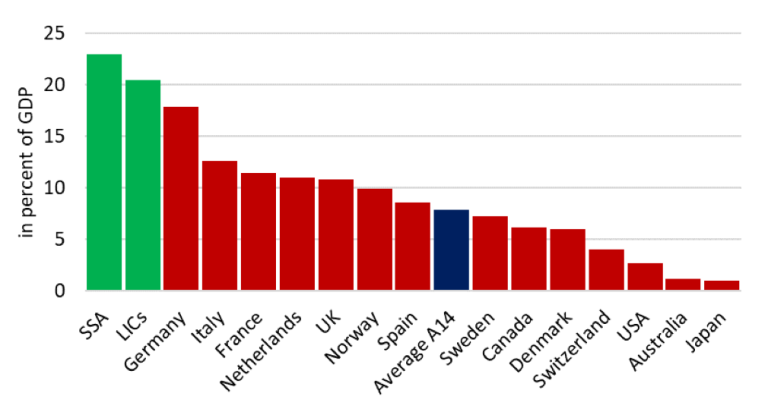这是一份liverpool利物浦大学ECON306的成功案例

$$
L_{Y} \Delta Y+L_{P} \Delta P+L_{i} \Delta i=\Delta D+X\left(\frac{e P^{}}{P}\right)-Z\left(Y \frac{e P^{}}{P}\right)+i^{} I_{f} $$ The terms on the left-hand side of this expression add up to changes in the demand for money. Here the change in reserves is the current account surplus. Hence if capital is immobile and the exchange in domestic credit is fixed any change in money supply will require adjustment in the current account of the balance of payments. If $P, Y$ and $i$ are exogenously determined it must be the case that $$ \Delta D=-\left[X \frac{e P^{}}{p}-Z\left(Y, \frac{e P^{}}{P}\right)+i^{} I_{f}\right]
$$

ECON306 COURSE NOTES :
To see the implications of flexible exchange rates consider the following example. Let the demand for money function be
$$
m=p+\alpha y-\beta i
$$
where $m=\ln M$ (log of money demand); $p=\ln P(\log$ of price level); $\alpha$ is the income elasticity of demand for money $((d M / M)(d Y / Y)) ; \beta$ is the interest semi-elasticity of demand for money with respect to the rate of interest $((d M /$ $M) / d i)$; and $y=\ln Y(\log$ of income $)$.
The foreign economy has an identical demand for money function
$$
m^{}=p+\alpha y^{}-\beta i^{} $$ The monetary approach assumes that $\alpha$ and $\beta$ are the same world-wide. Subtracting equation (6.38) from equation (6.37) we have $$ m-m^{}=p-p^{}+\alpha\left(y-y^{}\right)-\beta\left(i-i^{}\right) $$ Rearrange equation (6.39) with $p-p^{}$ as the dependent variable to get
$$
p-p^{}=m-m^{}-\alpha\left(y-y^{}\right)+\beta\left(i-i^{}\right)
$$